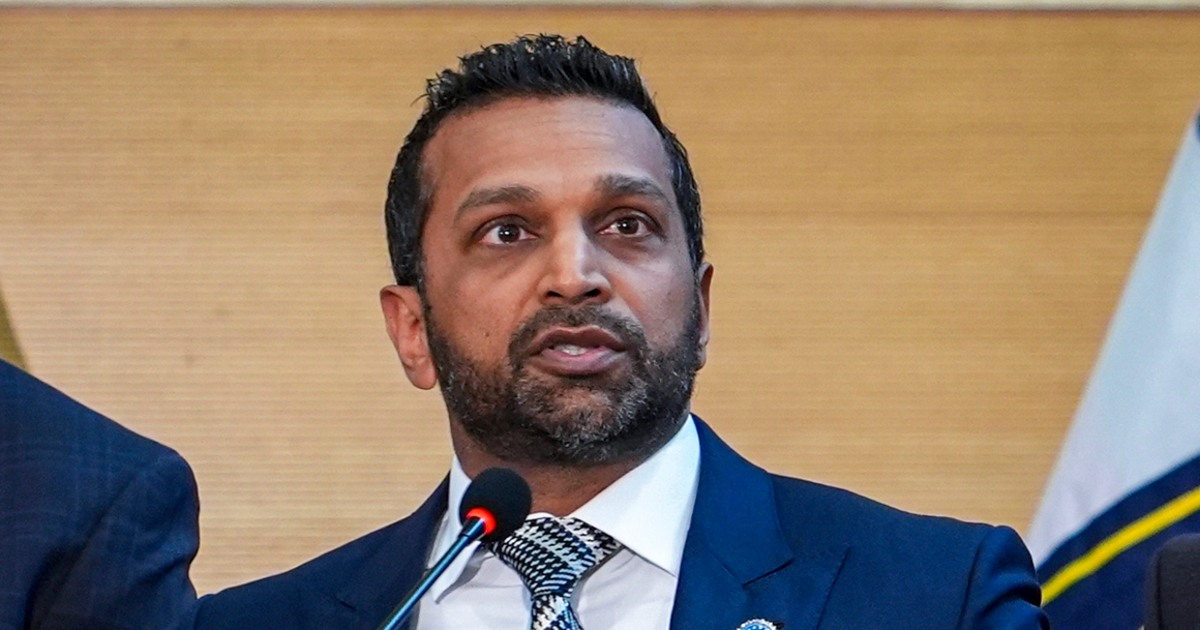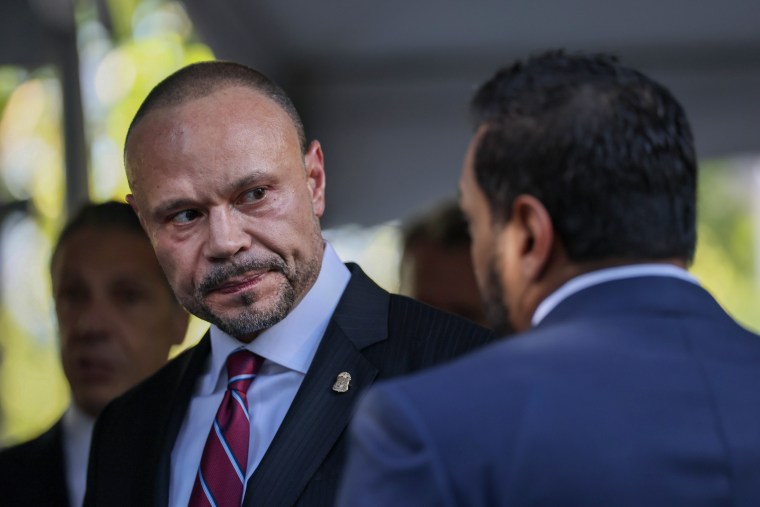
FBI Director Kash Patel’s activities during the investigation of conservative activist Charlie Kirk’s assassination raise questions about his decision-making during a crisis, four former FBI officials and two administration officials told NBC News.
From the shooting Wednesday to a suspect’s arrest Friday, Patel took steps that gave pause to some federal and local officials and raised questions about his judgment, the sources said. Several spoke on the condition of anonymity, some because they were not authorized to speak publicly and others citing fear of retaliation from the Trump administration.
Those actions ranged from where Patel was on the evening of the assassination to what a former official described as “grandstanding” by Patel about his own role after the arrest.
“He has heard concerns about how this looks,” an administration official said in a statement. “There are a lot of shaking heads.”
Christopher O’Leary, a senior former FBI counterterrorism official, said Patel’s handling of the investigation showed that “he’s got zero leadership experience and capabilities.”
A current law enforcement official who spoke on condition of anonymity said the “horrific event” of Kirk’s killing showcased Patel’s “public inability to meet the moment as a leader.”
A White House official defended Patel’s performance, saying in a statement that the FBI director “is working night and day” on the case.
“Anyone who doubts his resolve and dedication — especially when Charlie was such a close friend to him — simply is using this extremely sad moment in a disgusting act of political gamesmanship,” the official said. “The focus is justice, and this killer will face the full wrath of the justice system.”
A senior White House official said in a separate statement Sunday that President Donald Trump has confidence in Patel and his handling of the investigation. “The president spoke on it this morning and said he thinks everyone has done an amazing job,” the official said.
Dinner at Rao’s
Hours after the shooting at Utah Valley University, Patel dined at the exclusive New York restaurant Rao’s, two sources familiar with his whereabouts said. A reservation at Rao’s, on the Upper East Side, is famously difficult to obtain.
Patel posted on X at 6:21 p.m. that “the subject” in Kirk’s killing was “in custody.” Roughly 90 minutes later, at 7:59 p.m., he posted a follow-up message saying the “subject in custody has been released after an interrogation by law enforcement.”
It is not clear if Patel was at Rao’s, which opens at 7 p.m., when he published the second post. The restaurant did not respond to a request for comment.
Four former senior FBI officials told NBC News that the posts were premature and unnecessary. O’Leary said they undermined public confidence in the bureau.
“They gave the public the perception that the FBI is not that organized at a time when the public is concerned because there’s an unfolding crisis,” said O’Leary, an MSNBC national security contributor. “They need to be reassured that the FBI and its partners have the situation under control, and that is done through accurate strategic messaging.”
Asked whether Patel had dined at Rao’s and for a response to the criticism, a spokesperson for the bureau said in a statement: “The FBI worked with our law enforcement partners in Utah to bring to justice the individual allegedly responsible for the horrific murder of Charlie Kirk, and we will continue to be transparent with the American people with real-time updates as we are able.”
Two former senior FBI officials said it was premature for Patel to post on X that “the subject” was in custody.
“He should not have posted anything about the case until there was certainty,” the first former senior FBI official said. “People need to trust what the director says. He needs to be measured and always right. It wasn’t a good look.”
A second former senior FBI official said “investigations aren’t a publicity contest” or about “who can tweet out information first.”
A heated call
With the suspect still at large the morning after Kirk’s killing, Patel and his deputy, Dan Bongino, held a tense conference call with agents nationwide, according to two law enforcement officials and a Trump administration official.
Patel and Bongino said on the profanity-laced call Thursday morning that they were under intense pressure to arrest the killer, according to The New York Times, which cited three people familiar with the exchange. Patel also called out agents in Salt Lake City for not having shared photos of the suspect with him sooner.
That afternoon, Patel chose to travel from New York to Utah after he attended 9/11 anniversary ceremonies. Two administration officials, who spoke on condition of anonymity, said Patel was told not to appear at news conferences in Utah or make other public comments until there was an arrest.
On Thursday evening, Patel appeared at a news conference in Utah with state and local officials but did not speak. One of the administration officials said Patel “made the right decision” by remaining silent.
A third former senior FBI official criticized Patel’s decision to travel to Utah before an arrest. He said Patel’s arrival could have distracted agents or pulled them away from the investigation.
“No serious director would show up at this stage,” the former senior FBI official said. “They can’t help. They can only distract. Every agent needed to support the visit is an agent not available to work the case.”
On Saturday, the day after 22-year-old Tyler Robinson was arrested in connection with the killing, Patel said on X that the FBI had solved the case by overruling other law enforcement agencies.
“Against all law enforcement recommendations, we demanded the video footage and enhanced stills of the suspect be released to the public,” Patel wrote. “Robinson’s father, who ultimately turned him in to authorities, told law enforcement that he recognized his son in that released video.”

The Utah Department of Public Safety, the state’s main law enforcement agency, issued a statement contradicting Patel’s claim and emphasizing the importance of a “unified investigation.”
A spokesperson for the agency said it first tried to identify the suspect using facial recognition technology to give officers an element of surprise and to prevent people who looked like the suspect from being unfairly scrutinized.
“We did not recommend they not be released, however we first used technology (facial recognition) to try to identify,” the spokesperson said. “When that was unsuccessful we were fully supportive and in agreement we should release the photos.”
A former senior official in a large police department who repeatedly worked with the FBI questioned Patel’s criticism of local officials.
He said the FBI traditionally brings sweeping resources to investigations, but the agency generally has local officials — who are sometimes more trusted by the public than federal officials — be the faces of the investigations.
“These things should be left to the actual on-the-ground investigators,” said the former senior law enforcement official, who asked not to be named for fear of retaliation.
The former official added that he believed Patel’s need to please Trump to keep his job may have caused him to criticize Utah officials.
He said that “it never benefits the FBI to criticize the locals” and added that Patel appeared to be “grandstanding to impress an audience of one.”
Past firings
O’Leary, now a senior vice president at the Soufan Group, a security consulting firm, noted Patel’s management of the bureau has also been marked by firings of supervisors and agents who investigated Trump or Jan. 6 rioters.
He cited as an example the ouster last month of Brian Driscoll, a senior FBI official who was its acting director before Patel took office. Driscoll, who tried to protect agents who worked on Jan. 6 investigations, and two other former senior FBI officials sued Patel last week and requested their jobs back.
O’Leary also cited the demotion and subsequent retirement of Mehtab Syed, the head of the bureau’s Salt Lake City office. He said it was not clear why Syed, who had worked multiple high-level terrorism cases and been a senior counterintelligence official, was forced out.
“The corrosive nature of their policies is starting to have an impact,” O’Leary said. “And it is leading to generational destruction to an institution that is essential to the protection of our nation, both from external and internal actors.”
Source link

